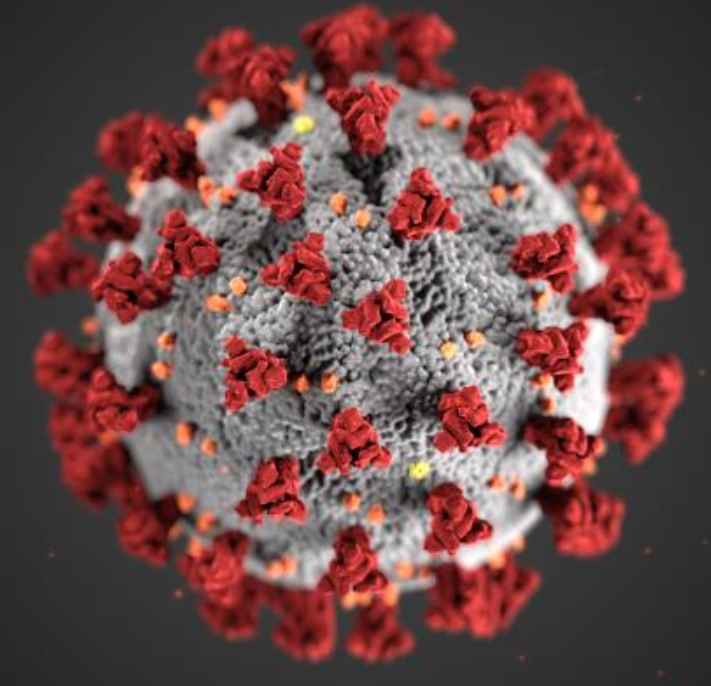
- Competitive and Administrative Supplements for Community Interventions to Reduce the Impact of COVID-19 on Health Disparity and Other Vulnerable Populations (NOT-MD-20-022)
- Notice of Intent to Publish a Funding Opportunity Announcement for Community Interventions to Address the Consequences of the COVID-19 Pandemic for Health Disparity and Vulnerable Populations (R01- Clinical Trial Optional) (NOT-MD-20-023)
The COVID-19 pandemic has exacerbated health disparities, leading to a disproportionate number of adverse health and other consequences for vulnerable populations (e.g., NIH-designated health disparity populations, residents of chronic care and assisted living facilities, homeless populations, incarcerated populations, and those working in essential business operations). These two funding opportunities will support research testing community interventions focused on the prevention or slowing of COVID-19 transmission, evaluating local and State policies and programs intended to mitigate COVID-19 exposure and improve adherence, and reducing the negative impact of the multifaceted consequences on the health of vulnerable populations.
- Digital Healthcare Interventions to Address the Secondary Health Effects Related to Social, Behavioral, and Economic Impact of COVID-19 (NOT-MH-20-053)
This funding opportunity supports research to address the effects of existing digital health assessments and interventions (e.g., mobile health, telemedicine and telehealth, health information technology, wearable devices, and personalized medicine) on secondary health effects related to the social, behavioral, and economic impact of the COVID-19 pandemic. Proposed research topics concerning vulnerable populations, particularly those experiencing health disparities, are of particular interest.
- Urgent Competitive Revisions and Administrative Supplements for Coronavirus Disease 2019 (COVID-19) Research within the Mission of NIDCR (NOT-DE-20-022)
These supplemental funds from the National Institute of Dental and Craniofacial Research (NIDCR) will support research to improve COVID-19-related safety measures to protect personnel and patients in dental practices. Potential research topics include preventing SARS-CoV-2 transmission, improving the detection and diagnosis of COVID-19, and enriching the understanding of SARS-CoV-2 pathogenesis. Topics addressing the influence and interaction of sex (a biological variable), gender (a social construct), race, and ethnicity are of interest, as are questions about risk, prevention, and health outcomes.
- Administrative Supplements and Urgent Competitive Revisions for Research on the 2019 Novel Coronavirus and the Behavioral and Social Sciences (NOT-OD-20-097)
The national and global response to the COVID-19 pandemic highlights the importance of behavioral and social factors in health and illness. This funding opportunity encourages researchers to add COVID-19-related questions to ongoing social, behavioral, economic, health communication, and epidemiologic longitudinal studies. Supplemental research topics might include adherence to containment and mitigation efforts; social, behavioral, and economic impacts from these efforts; and resulting downstream health impacts, including differences in risk and resiliency based on gender, race and ethnicity, socioeconomic status, and other social determinants of health.
- Emergency Competitive Revisions for Social, Ethical, and Behavioral Implications (SEBI) Research on COVID-19 Testing among Underserved and/or Vulnerable Populations (NOT-OD-20-119)
- Emergency Competitive Revisions for Community-Engaged Research on COVID-19 Testing among Underserved and/or Vulnerable Populations (NOT-OD-20-120)
- Limited Competition for Emergency Competitive Revisions for Community-Engaged Research on COVID-19 Testing among Underserved and/or Vulnerable Populations (NOT-OD-20-121)
- Emergency Awards: RADx-UP Coordination and Data Collection Center (CDCC) (U24 Clinical Trial Optional) (RFA-OD-20-013)
These funding opportunities will support research to improve our understanding of the factors that have led to the disproportionate burden of the COVID-19 pandemic on underserved and vulnerable populations across the United States. These funds are available through the Rapid Acceleration of Diagnostics—Underserved Populations initiative (RADx-UP), one of four RADx components designed to catalyze the scientific community to improve testing technologies, capacity, and accessibility for the country. RADx-UP will (1) establish a network of community-engaged projects to improve access to and acceptance of testing among underserved and vulnerable populations; (2) help to understand the social, ethical, and behavioral implications of COVID-19 testing for these populations; (3) address the urgent need to understand COVID-19 morbidity and mortality disparities; and (4) inform interventions to decrease these health disparities.
- Administrative Supplements & Urgent Competitive Revisions to National Center for Complementary and Integrative Health (NCCIH) Grants for Natural Product Research on SARS-CoV-2 & COVID-19 (NOT-AT-20-012)
This funding opportunity promotes research on the effects of natural products alone or in combination with other complementary and integrative health approaches on SARS-CoV-2 and COVID-19. Research focusing on the therapeutic and/or mechanistic effects on SARS-CoV-2/COVID-19 of natural product–based complementary remedies (e.g., herbal therapies, vitamins, supplements, probiotics, microbial therapies, Chinese herbal preparations) are of particular interest.
